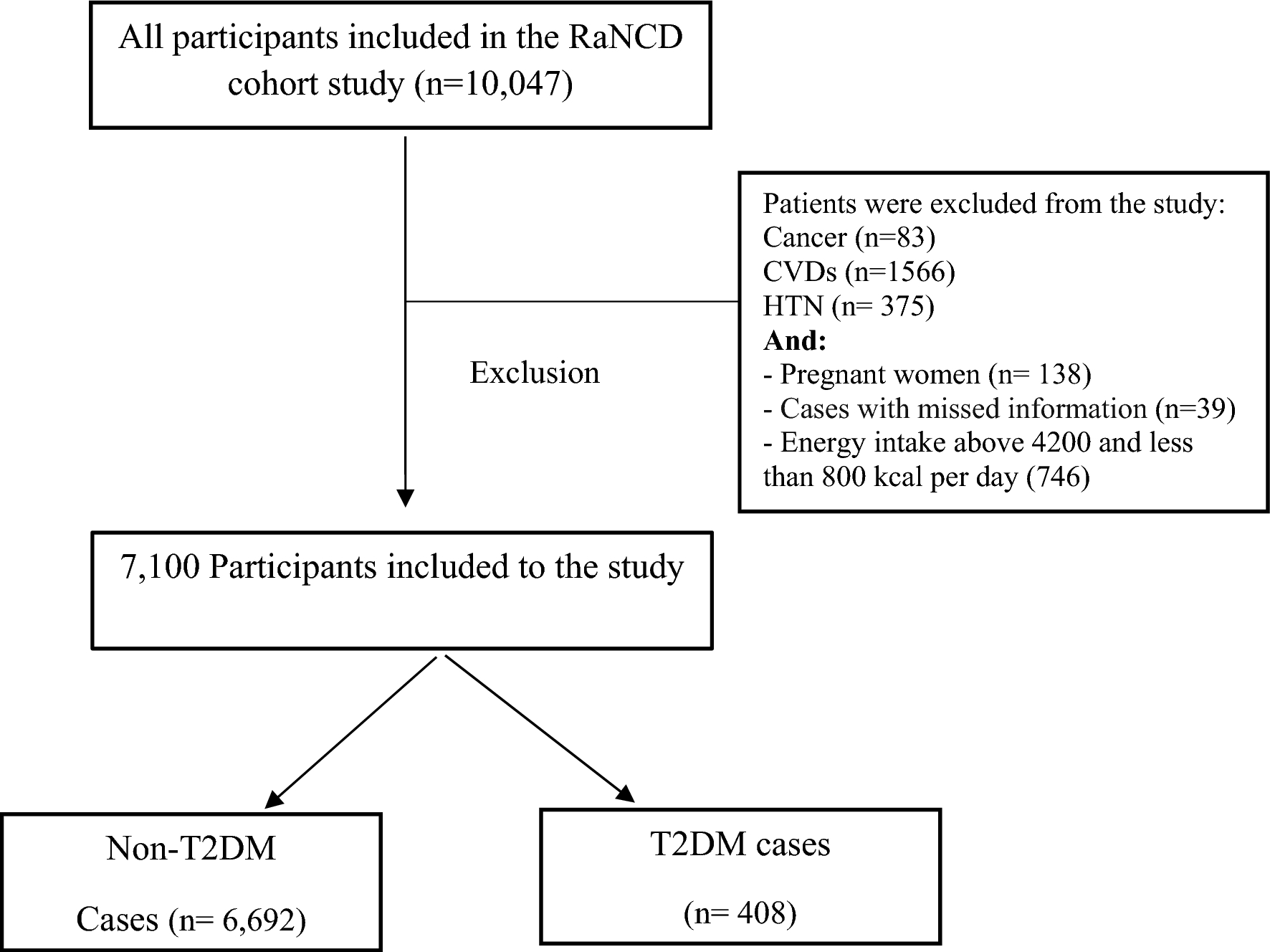Introduction
Type 2 diabetes mellitus (T2DM) is a major global health issue that causes over a million deaths annually and affects more than 500 million people worldwide. Preventive strategies, including lifestyle modifications, such as diet, smoking cessation, stress management, and physical activity, are key to reducing the economic and clinical burden of T2DM. Adhering to healthy dietary patterns such as Mediterranean diets, DASH diets, prudent patterns, and general dietary guidelines has been shown to significantly reduce the risk of developing type 2 diabetes. Plant-based diets, characterised by high consumption of vegetables, fruits, nuts, legumes, seeds, and whole grains and low consumption of animal products, have been linked to a lower incidence of chronic diseases, including cardiovascular diseases, dyslipidaemia, gastroesophageal disease, cancer, gestational diabetes, T2DM, and obesity. These diets may also help alleviate common complications in patients with diabetes, such as sleep disturbances and psychological disorders.
Epidemiological studies indicate that plant-derived substances, particularly polyphenols such as flavonoids, phenolic acids, stilbenes, and lignans, improve insulin sensitivity and may prevent T2DM. Plant-based diets can also reduce systemic inflammation and oxidative stress, enhance the gut microbiota, and promote weight loss. Although plant-based diets are inversely associated with T2DM in high-income countries, the correlation in low- or middle-income countries remains unclear, partly due to differences in dietary patterns and grain consumption.
No studies in Iran have explored the link between a plant-based diet and T2DM risk. Research in Iran on related health outcomes such as cardiovascular diseases, gestational diabetes, and cancer risk has produced controversial results. Therefore, this study aimed to investigate whether a plant-based diet could reduce the likelihood of T2DM in low- and middle-income countries, potentially making it a crucial public health priority.
Material and Methods

This cross-sectional study utilised data from the Ravansar Non-Communicable Disease (RaNCD) cohort, approved by Kermanshah University of Medical Sciences. RaNCD is a community-based prospective study focusing on noncommunicable diseases within the Kurdish population. Initially, 10,047 participants were enrolled; however, after excluding those with high or low energy intake, cancer, cardiovascular disease, hypertension, or pregnancy, 7,100 participants remained.
The study collected data on participants’ demographics, smoking habits, physical activity (categorised as low, moderate, or high based on MET/hour per day), and socioeconomic status (SES), which were classified into three levels. Anthropometric measurements included weight, visceral fat area (VFA), body mass index (BMI), and waist circumference (WC), which were obtained using an automated bioelectric impedance device and manual measurement.
Dietary data were gathered using a validated food frequency questionnaire (FFQ) comprising 118 food items categorised into 18 groups based on nutrient content. These groups were further divided into healthy plant, less healthy plant, and animal foods. Participants were scored from 1 to 5 for each food group, based on their consumption quintiles.
The plant-based diet index (PDI) was calculated by assigning points to different quintiles of food group consumption, with the highest scores assigned to the highest quintile of healthy plant foods and the lowest scores to the highest quintile of animal foods. The overall index scores range from 18 to 90, indicating the degree of adherence to a plant-based diet.
Type 2 diabetes mellitus (T2DM) was diagnosed based on fasting blood sugar (FBS) levels according to the International Diabetes Federation (IDF) criteria, which considers levels equal to or greater than 126 mg/dL and/or treatment with antidiabetic medications.
Statistical analyses were performed using the Stata software. The study tested variable normality, assessed differences in continuous and categorical variables across PDI tertiles, and calculated mean dietary intake adjusted for daily energy intake. Logistic regression models were used to evaluate the association between PDI scores and T2DM incidence after adjusting for age, sex, energy intake, physical activity, and SES. A P value of <0.05 with 95% confidence intervals (CIs) was considered statistically significant.
The study was conducted ethically and all participants provided oral and written informed consent.

Discussion
In this study, a significant inverse relationship was found between high Plant-Based Diet Index (PDI) scores and risk of type 2 Diabetes Mellitus (T2DM). This association persisted even after adjusting for factors such as age, sex, energy intake, physical activity, and socioeconomic status. These findings suggest that higher energy intake from plant-rich foods is consistently associated with a lower risk of T2DM across different sexes and age groups.
The results of this study align with previous research indicating an inverse relationship between plant-based diets and T2DM risk. For instance, studies in the U.S., Sweden, China, and Singapore have shown significant reductions in T2DM risk among individuals who adhere to plant-based diets. These studies consistently demonstrated that higher consumption of healthy plant foods and lower consumption of animal foods are associated with a reduced risk of T2DM.
However, not all studies have shown a consistent relationship between T2DM incidence and PDI. Variations in dietary behaviours and lifestyles across different populations could explain these discrepancies. For example, in a Korean study, a healthy plant-based diet index (hPDI), rather than the traditional PDI, was more significantly associated with T2DM risk reduction.
The study also indicated that higher PDI scores typically correlate with increased daily intake of whole grains, fruits, vegetables, legumes, tea, and coffee, and lower consumption of dairy, eggs, and meat. This dietary pattern is consistent across different populations and aligns with other studies that have highlighted the benefits of plant-based diets in preventing diabetes.
Biologically, plant-based diets are rich in phytochemicals, such as flavonoids, which have antioxidant and anti-inflammatory properties, improve insulin sensitivity, and support better glucose absorption. These diets are also linked to improved gut microbiota health and a favourable balance of dietary fats.
The study observed a decrease in T2DM diagnosis and antidiabetic drug use, with higher adherence to a plant-based diet. Additionally, fasting blood sugar levels decreased with increasing PDI tertile. However, the cross-sectional nature of the study limits its ability to establish causal relationships, and the use of a Food Frequency Questionnaire might not have captured the full dietary spectrum.
In conclusion, this study suggests that a diet rich in whole grains, fruits, vegetables, nuts, legumes, vegetable oils, and tea/coffee can reduce the risk of developing T2DM. Further research is needed to validate these findings and to explore the potential of plant-based diets for T2DM prevention.
Read all at: Heidarzadeh-Esfahani, N., Darbandi, M., Khamoushi, F. et al. Association of plant-based dietary patterns with the risk of type 2 diabetes mellitus using cross-sectional results from RaNCD cohort. Sci Rep 14, 3814 (2024). https://doi.org/10.1038/s41598-024-52946-z

